 Carla McDonald
Carla McDonald
Tuck Everlasting at Playhouse on the Square
The 36th annual Ostrander Awards comes together on August 25th at the Orpheum, honoring the best of most of Memphis theater for the 2018-2019 season. The judges have conferred and come up with the nominees listed here.
The one winner we know for certain this year is veteran actor Christina Wellford Scott, who will receive the Eugart Yerian Award for Lifetime Achievement. That honor is given to those who have distinguished themselves for years of contributions to the local performance community.
More information on the Ostranders is here. Tickets are available in advance for $15 plus fees, and at the door for $20. A ticket includes the post-event reception at the Halloran Centre. They’re available here.
In the collegiate division, dramas and musicals are in one category for the majority of awards. In the community and professional division, awards are split by drama or musical.
If you’re counting, Theatre Memphis (Lohrey Stage) has 43 nominations, TM’s Next Stage 30, Playhouse on the Square 37, Circuit Playhouse 22, New Moon Theatre 13, Hattiloo Theatre 8, Harrell Theatre 4, and POTS@TheWorks 3.
Thanks as always to Memphis magazine, ArtsMemphis, and the Orpheum Theatre Group for making it possible.
Community & Professional Division
Best Set Design of a Drama
• Andrew Mannion, Sweat, Circuit Playhouse
• Brian Ruggaber & Melanie Mulder, The Parchman Hour: Songs and Stories of the ‘61 Freedom Riders, Hattiloo Theatre
• Bryce Cutler, The Curious Incident of the Dog in the Night-time, Playhouse on the Square
• Jack Yates, Heisenberg, Next Stage, Theatre Memphis
• Jack Yates, The Clean House, Next Stage, Theatre Memphis
Best Set Design of a Musical
• Jack Yates, 1776, Theatre Memphis
• Jack Yates, 25th Annual Putnam County Spelling Bee, Next Stage, Theatre Memphis
• Jack Yates, Hairspray, Theatre Memphis
• Jack Yates, Newsies, Theatre Memphis
• Tim McMath, Tuck Everlasting, Playhouse on the Square
Best Costume Design for a Drama
• Amie Eoff, The Man Who Came to Dinner, Theatre Memphis
• Ashley Kopera, Twelfth Night, New Moon
• Heather Steward, Little Women, Next Stage, Theatre Memphis
• Lindsay Schmeling, The Legend of Georgia McBride, Circuit Playhouse
• Waverly Strickland, The Curious Incident of the Dog in the Night-time, Playhouse on the Square
Best Costume Design for a Musical
• Amie Eoff, 1776, Theatre Memphis
• Amie Eoff, Hairspray, Theatre Memphis
• Amie Eoff, Newsies, Theatre Memphis
• Kathleen R. Kovarik, A Gentleman’s Guide to Love and Murder, Playhouse on the Square
• Kathleen R. Kovarik, Tuck Everlasting, Playhouse on the Square
Best Hair/Wig/Makeup for a Drama
• Lindsay Schmeling, The Legend of Georgia McBride, Circuit Playhouse
• Barbara Sanders, Little Women, Next Stage, Theatre Memphis
• Heather Steward and Lindsay Taylor, Dracula, Next Stage, Theatre Memphis
• Buddy Hart & Rence Phillips, Steel Magnolias, Harrell Theatre
• Alexandria Perel-Sams, The Man Who Came to Dinner, Theatre Memphis
Best Hair/Wig/Makeup for a Musical
• A Gentleman’s Guide to Love and Murder, Playhouse on the Square
• Barbara Sanders, 1776, Theatre Memphis
• Buddy Hart & Rence Phillips, Hairspray, Theatre Memphis
• Kathleen R. Kovarik, Cabaret, Playhouse on the Square
• Waverly Strickland, Madagascar, Circuit Playhouse
Best Props Design for a Drama
• Betty Dilley, Steel Magnolias, Harrell Theatre
• Brandyn Nordlof, Sweat, Circuit Playhouse
• Brandyn Nordlof, The Curious Incident of the Dog in the Night-time, Playhouse on the Square
• Jack Yates, Heisenberg, Next Stage, Theatre Memphis
• Jack Yates, The Clean House, Next Stage, Theatre Memphis
Best Props Design for a Musical
• Brandyn Nordlof & Abby Teel, A Gentleman’s Guide to Love and Murder, Playhouse on the Square
• Brandyn Nordlof, Cabaret, Playhouse on the Square
• Brandyn Nordlof, Tuck Everlasting, Playhouse on the Square
• Jack Yates, Hairspray, Theatre Memphis
• Jack Yates, Newsies, Theatre Memphis
Best Lighting Design for a Drama
• Alyssandra Docherty, The Parchman Hour: Songs and Stories of the ‘61 Freedom Riders, Hattiloo Theatre
• Justin Gibson, The Curious Incident of the Dog in the Night-time, Playhouse on the Square
• Mandy Kay Heath, The Clean House, Next Stage, Theatre Memphis
• Trey Eikleberry and Justin Gibson, Junk, Circuit Playhouse
• Trey Eikleberry, Sweat, Circuit Playhouse
Best Lighting Design for a Musical
• Justin Gibson, Tuck Everlasting, Playhouse on the Square
• Mandy Kay Heath, 1776, Theatre Memphis
• Mandy Kay Heath, Hairspray, Theatre Memphis
• Mandy Kay Heath, Newsies, Theatre Memphis
• Melissa Andrews & Thomas Halfacre, Lizzie: The Musical, New Moon Theatre
Best Sound Design for a Drama
• Ashley Davis, The Parchman Hour: Songs and Stories of the ‘61 Freedom Riders, Hattiloo Theatre
• Carter McHann, Sweat, Circuit Playhouse
• Joe Johnson, Heisenberg, Next Stage, Theatre Memphis
• Joe Johnson, The Clean House, Next Stage, Theatre Memphis
• Travis Bradley, Carter McHann, & Jordan Nichols, The Curious Incident of the Dog in the Night-time, Playhouse on the Square
Best Sound Design for a Musical
• Carter McHann, Tuck Everlasting, Playhouse on the Square
• Gene Elliott, Lizzie: The Musical, New Moon Theatre
• Jason Eschhofen & Reyn Lehman, 1776, Theatre Memphis
• Joshua Crawford, Hairspray, Theatre Memphis
• Joshua Crawford, Newsies, Theatre Memphis
Best Music Direction
• Eileen Kuo, Lizzie: The Musical, New Moon Theatre
• Gary Beard, 1776, Theatre Memphis
• Jeff Brewer, Hairspray, Theatre Memphis
• Jeff Brewer, Newsies, Theatre Memphis
• Nathan McHenry, A Gentleman’s Guide to Love and Murder, Playhouse on the Square
Best Choreography/Fight Choreography for a Drama
• Brittany Church, The Clean House, Next Stage, Theatre Memphis
• Courtney Oliver & Donald Sutton, Sweat, Circuit Playhouse
• Daniel Stuart Nelson, The Legend of Georgia McBride, Circuit Playhouse
• Jordan Nichols & Travis Bradley, The Curious Incident of the Dog in the Night-time, Playhouse on the Square
• Naivell Steib, The Parchman Hour: Songs and Stories of the ‘61 Freedom Riders, Hattiloo Theatre
Best Choreography for a Musical
• Daniel Stuart Nelson, Tuck Everlasting, Playhouse on the Square
• Jordan Nichols & Travis Bradley, Newsies, Theatre Memphis
• Jordan Nichols & Travis Bradley, Hairspray, Theatre Memphis
• Travis Bradley, Cabaret, Playhouse on the Square
• Whitney Branan, Madagascar, Circuit Playhouse
Best Supporting Actress in a Drama
• Aliza Moran, The Clean House, Next Stage, Theatre Memphis
• Annie Freres, Twelfth Night, New Moon Theatre
• Danika Norfleet, A Song for Coretta, Hattiloo Theatre
• Susan Brindley, Agnes of God, New Moon Theatre
• Tamara Wright, The Clean House, Next Stage, Theatre Memphis
Best Supporting Actress in a Musical
• Annie Freres, Lizzie: The Musical, New Moon Theatre
• Edna Dinwiddie, 1776, Theatre Memphis
• Jaclyn Suffel, Lizzie: The Musical, New Moon Theatre
• Rebecca Johnson, Cabaret, Playhouse on the Square
• Whitney Branan, Hairspray, Theatre Memphis
Best Leading Actress in a Drama
• Jaclyn Suffel, The Clean House, Next Stage, Theatre Memphis
• Jessica Jai Johnson, Sweat, Circuit Playhouse
• Kim Sanders, Sweat, Circuit Playhouse
• Natalie Jones, Heisenberg, Next Stage, Theatre Memphis
• Sarah Jo Biggs, Little Women, Next Stage, Theatre Memphis
Best Leading Actress in a Musical
• Christina Hernandez, Lizzie: The Musical, New Moon Theatre
• Erica Peninger, Hairspray, Theatre Memphis
• Jenny Wilson, 25th Annual Putnam County Spelling Bee, Next Stage, Theatre Memphis
• Kelly McCarty, Tuck Everlasting, Playhouse on the Square
• Whitney Branan, Cabaret, Playhouse on the Square
Best Supporting Actor in a Drama
• Andrew Chandler, Dracula, Theatre Memphis
• JS Tate, Sweat, Circuit Playhouse
• Justin Allen Tate, The Legend of Georgia McBride, Circuit Playhouse
• Michael Gravois, The Curious Incident of the Dog in the Night-time, Playhouse on the Square
• Oliver Jacob Pierce, Twelfth Night, New Moon Theatre
Best Supporting Actor in a Musical
• Donald Sutton, Tuck Everlasting, Playhouse on the Square
• Javier Pena, 25th Annual Putnam County Spelling Bee, Next Stage, Theatre Memphis
• Luke Conner, Newsies, Theatre Memphis
• Michael Gravois, Tuck Everlasting, Playhouse on the Square
• Talen Piner, Madagascar, Circuit Playhouse
Best Leading Actor in a Drama
• Danny Crowe, 1984, Circuit Playhouse
• Gabe Beutel-Gunn, Junk, Circuit Playhouse
• Jason Spitzer, The Man Who Came to Dinner, Theatre Memphis
• Ryan Duda, The Curious Incident of the Dog in the Night-time, Playhouse on the Square
• TC Sharpe, The Miraculous and the Mundane, POTS@TheWorks
Best Leading Actor in a Musical
• Bradley Karel, Newsies, Theatre Memphis
• Donald Sutton, Cabaret, Playhouse on the Square
• John Maness, 1776, Theatre Memphis
• Michael Gravois, A Gentleman’s Guide to Love and Murder, Playhouse on the Square
• Ryan Gilliam, The Producers, Harrell Theatre
Best Featured Performer in a Drama
• Christina Wellford Scott, The Curious Incident of the Dog in the Night-time, Playhouse on the Square
• Jason Gerhard, Junk, Circuit Playhouse
• Jimbo Lattimore, The Man Who Came to Dinner, Theatre Memphis
• Lena Wallace Black, Little Women, Next Stage, Theatre Memphis
• Steven Brown, Little Women, Next Stage, Theatre Memphis
Best Featured Performer in a Musical
• Ann Marie Hall, Tuck Everlasting, Playhouse on the Square
• Daniel Kopera, Jesus Christ Superstar, Harrell Theatre
• Jason Eschhofen, 1776, Theatre Memphis
• Jimbo Lattimore, 25th Annual Putnam County Spelling Bee, Next Stage, Theatre Memphis
• Kirie Walz, Hairspray, Theatre Memphis
• Kristin Doty, A Gentleman’s Guide to Love and Murder, Playhouse on the Square
Best Ensemble in a Drama
• Little Women, Next Stage, Theatre Memphis
• Sweat, Circuit Playhouse
• The Clean House, Next Stage, Theatre Memphis
• The Curious Incident of the Dog in the Night-time, Playhouse on the Square
• The Parchman Hour: Songs and Stories of the ‘61 Freedom Riders, Hattiloo Theatre
Best Ensemble in a Musical
• 1776, Theatre Memphis
• 25th Annual Putnam County Spelling Bee, Next Stage, Theatre Memphis
• Hairspray, Theatre Memphis
• Lizzie: The Musical, New Moon Theatre
• Newsies, Theatre Memphis
Best Direction of a Drama
• Dennis Whitehead-Darling, The Parchman Hour: Songs and Stories of the ‘61 Freedom Riders, Hattiloo Theatre
• Irene Crist, Sweat, Circuit Playhouse
• Jason Spitzer, Little Women, Next Stage, Theatre Memphis
• John Maness, Twelfth Night, New Moon Theatre
• Jordan Nichols & Travis Bradley, The Curious Incident of the Dog in the Night-time, Playhouse on the Square
Best Direction of a Musical
• Cecelia Wingate, 1776, Theatre Memphis
• Dave Landis, Cabaret, Playhouse on the Square
• Dave Landis, Tuck Everlasting, Playhouse on the Square
• Jordan Nichols & Travis Bradley, Hairspray, Theatre Memphis
• Jordan Nichols & Travis Bradley, Newsies, Theatre Memphis
Best Production of a Drama
• Little Women, Next Stage, Theatre Memphis
• Sweat, Circuit Playhouse
• The Clean House, Next Stage, Theatre Memphis
• The Curious Incident of the Dog in the Night-time, Playhouse on the Square
• The Parchman Hour: Songs and Stories of the ‘61 Freedom Riders, Hattiloo Theatre
Best Production of a Musical
• Hairspray, Theatre Memphis
• 1776, Theatre Memphis
• Newsies, Theatre Memphis
• Lizzie: The Musical, New Moon Theatre
• Tuck Everlasting, Playhouse on the Square
College Division
Best Set Design
• Brian Ruggaber, Be More Chill, University of Memphis
• Kenton Jones, Intimate Apparel, University of Memphis
• Nicholas Jackson, Shaming JANE DOE, University of Memphis
Best Costume Design
• Kennon Cliche, Be More Chill, University of Memphis
• Jen Gillette, Intimate Apparel, University of Memphis
• Jen Gillette, Shaming JANE DOE, University of Memphis
Best Hair/Wig/Makeup
• Emily Greene, Be More Chill, University of Memphis
• Jen Gilette, Intimate Apparel, University of Memphis
• Rebecca Koenig & Keyauna Shorter, Shaming JANE DOE, University of Memphis
Best Props Design
• Kenton Jones, Be More Chill, University of Memphis
• Karen Arredondo, Intimate Apparel, University of Memphis
• Hattie Fann, Shaming JANE DOE, University of Memphis
Best Lighting Design
• Anthony Pellecchia, Be More Chill, University of Memphis
• Melissa Andrews, Fabulation or, The Re-Education of Undine, Rhodes College
• Zoey Smith, Intimate Apparel, University of Memphis
Best Sound Design
• John Phillians, Be More Chill, University of Memphis
• Anthony Pellecchia, Intimate Apparel, University of Memphis
• Sophia Deck, Rose and the Rime, Rhodes College
Best Music Direction
• Jacob Allen, Be More Chill, University of Memphis
• Eileen Kuo, I Love You, You’re Perfect, Now Change (2018 version), Rhodes College
Best Choreography
• Jill Guyton Nee, Be More Chill, University of Memphis
• I Love You, You’re Perfect, Now Change (2018 version), Rhodes College
Best Supporting Actress in a Drama
• Ariona Campbell, Crumbs from the Table of Joy, Southwest Tennessee Community College
• Hiawartha Jackson, Fabulation or, The Re-Education of Undine, Rhodes College
• Eboni Cain, Intimate Apparel, University of Memphis
Best Supporting Actress in a Musical
• Erica Peninger, Be More Chill, University of Memphis
• Lea Mae Aldridge, Be More Chill, University of Memphis
• Marlee Wilson, Be More Chill, University of Memphis
Best Leading Actress in a Drama
• Jessica Jai Johnson, Fabulation or, The Re-Education of Undine, Rhodes College,
• Simmery Branch, Intimate Apparel, University of Memphis
• Grace Small, Rose and the Rime, Rhodes College
Best Leading Actress in a Musical
• Aly Milan, Be More Chill, University of Memphis
• Jess Brookes, Closer Than Ever, Southwest Tennessee Community College
Best Supporting Actor in a Drama
• Adrian Harris, Fabulation or, The Re-Education of Undine, Rhodes College
• Toby Davis, Intimate Apparel, University of Memphis
Best Supporting Actor in a Musical (one nominee)
Best Leading Actor in a Drama
• Brandon Lewis, Imagination, Southwest Tennessee Community College
• Willis Green, Rose and the Rime, Rhodes College
• Christian Hinton, Shaming JANE DOE, University of Memphis
Best Leading Actor in a Musical
• Toby Davis, Be More Chill, University of Memphis
• Winston Mize, Closer Than Ever, Southwest Tennessee Community College
Best Featured Performer
• Riley Thad Young, Be More Chill, University of Memphis
• Jasmine Roberts, Intimate Apparel, University of Memphis
• John Ross Graham, Shaming JANE DOE, University of Memphis
Best Ensemble
• Be More Chill, University of Memphis
• Intimate Apparel, University of Memphis
• I Love You, You’re Perfect, Now Change (2018 version), Rhodes College
Best Direction
• Justin Braun, Be More Chill, University of Memphis
• Dennis Whitehead-Darling, Intimate Apparel, University of Memphis
• Joy Brooke Fairfield, I Love You, You’re Perfect, Now Change (2018 version), Rhodes College
Best Overall Production
• Be More Chill, University of Memphis
• Intimate Apparel, University of Memphis
• I Love You, You’re Perfect, Now Change (2018 version), Rhodes College
All Divisions
Best Original Script
• Shaming JANE DOE, University of Memphis
• Little Women, Next Stage, Theatre Memphis
• The Miraculous and the Mundane, POTS@TheWorks
Best Production of an Original Script
• Shaming JANE DOE, University of Memphis
• Little Women, Next Stage, Theatre Memphis
• The Miraculous and the Mundane, POTS@TheWorks
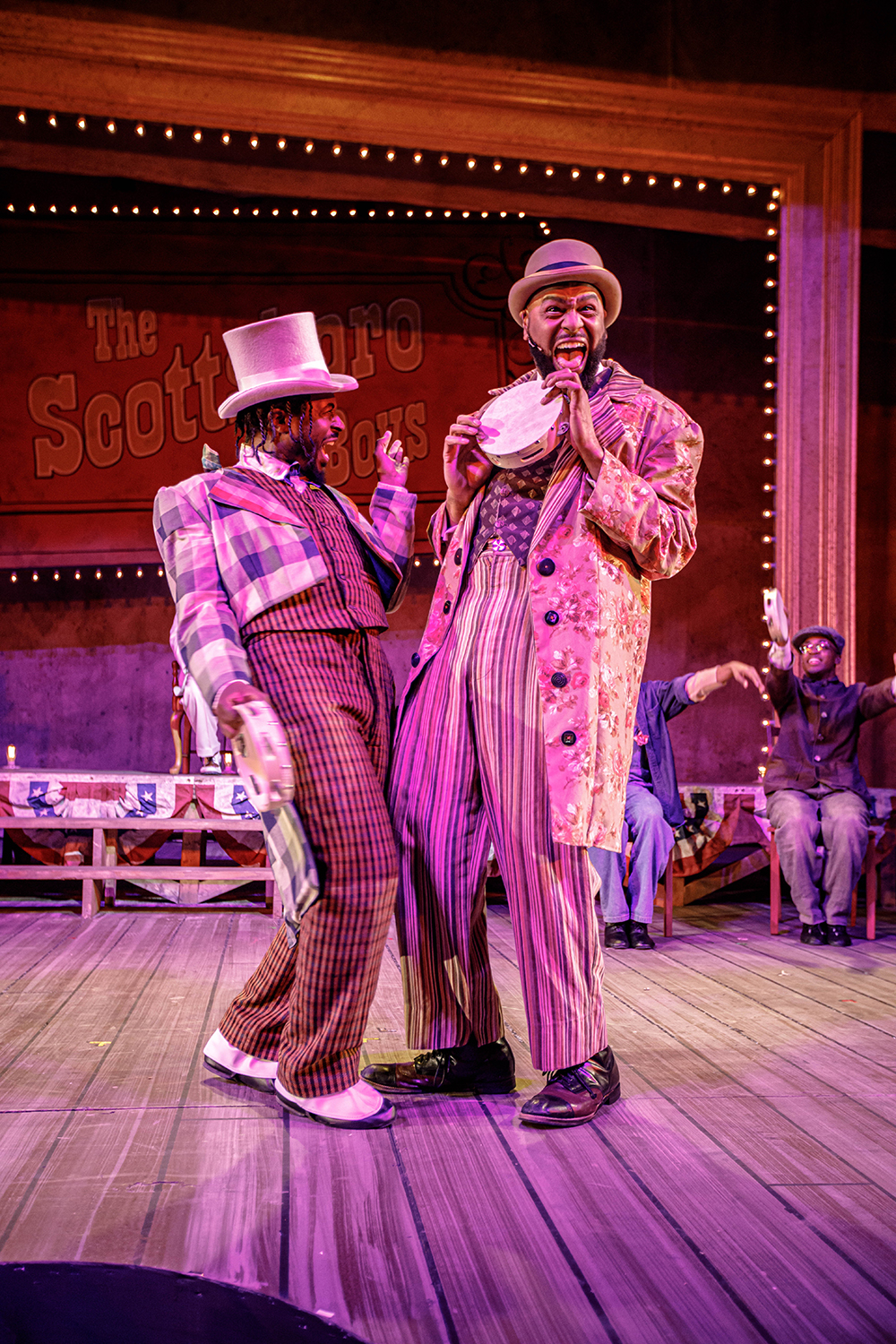
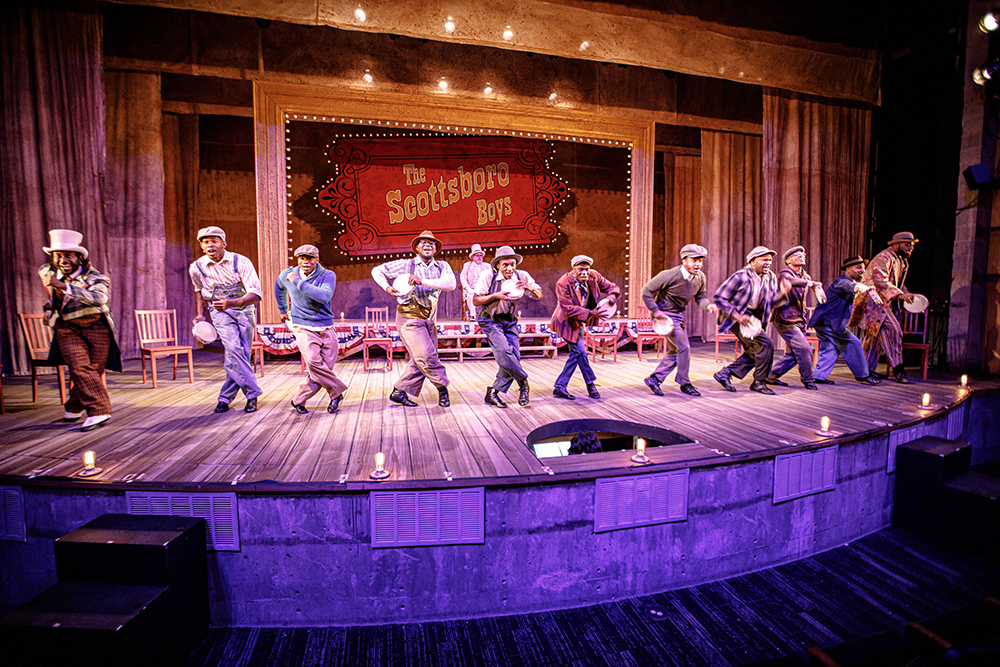
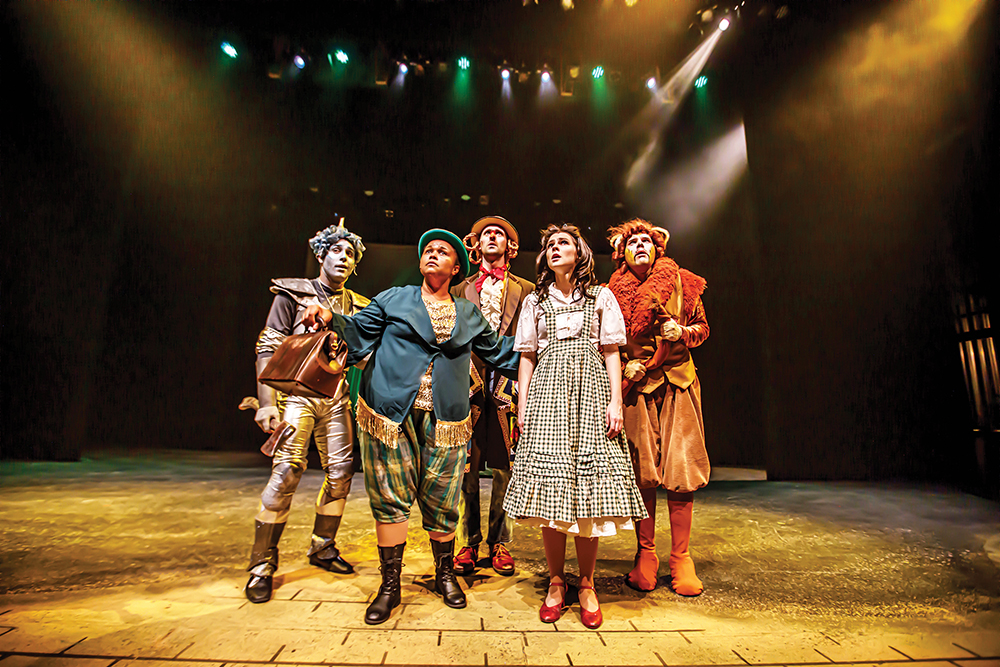
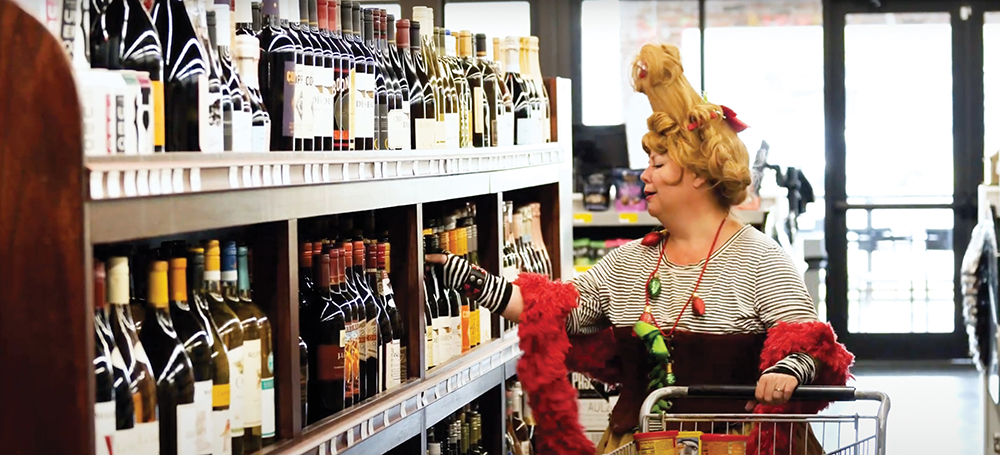
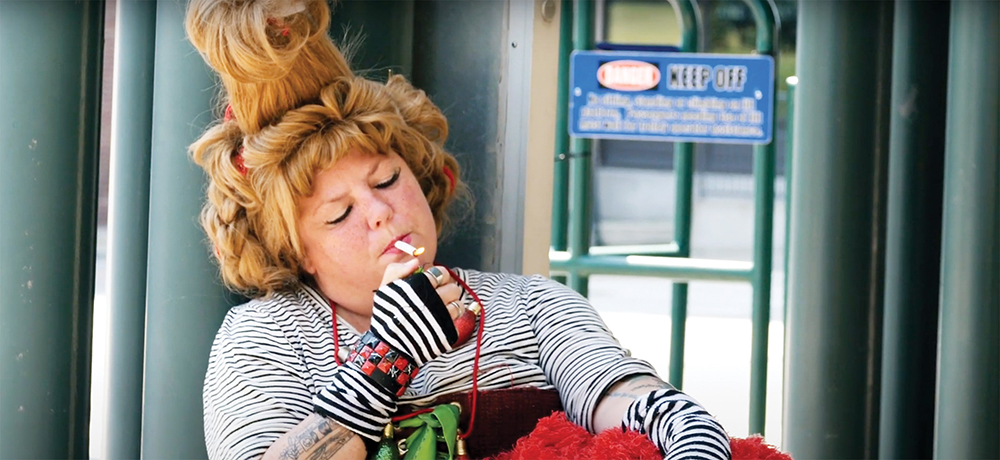
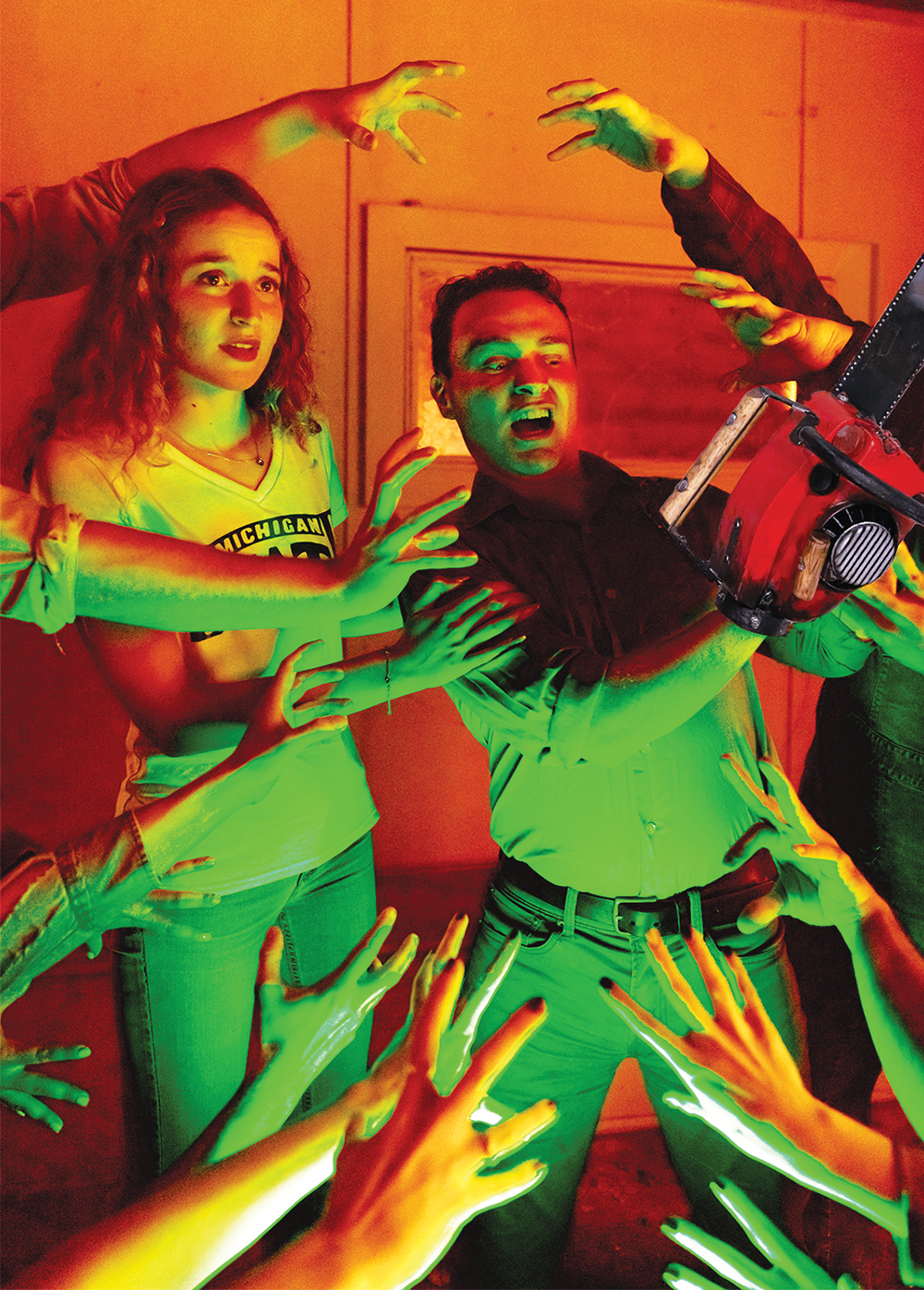
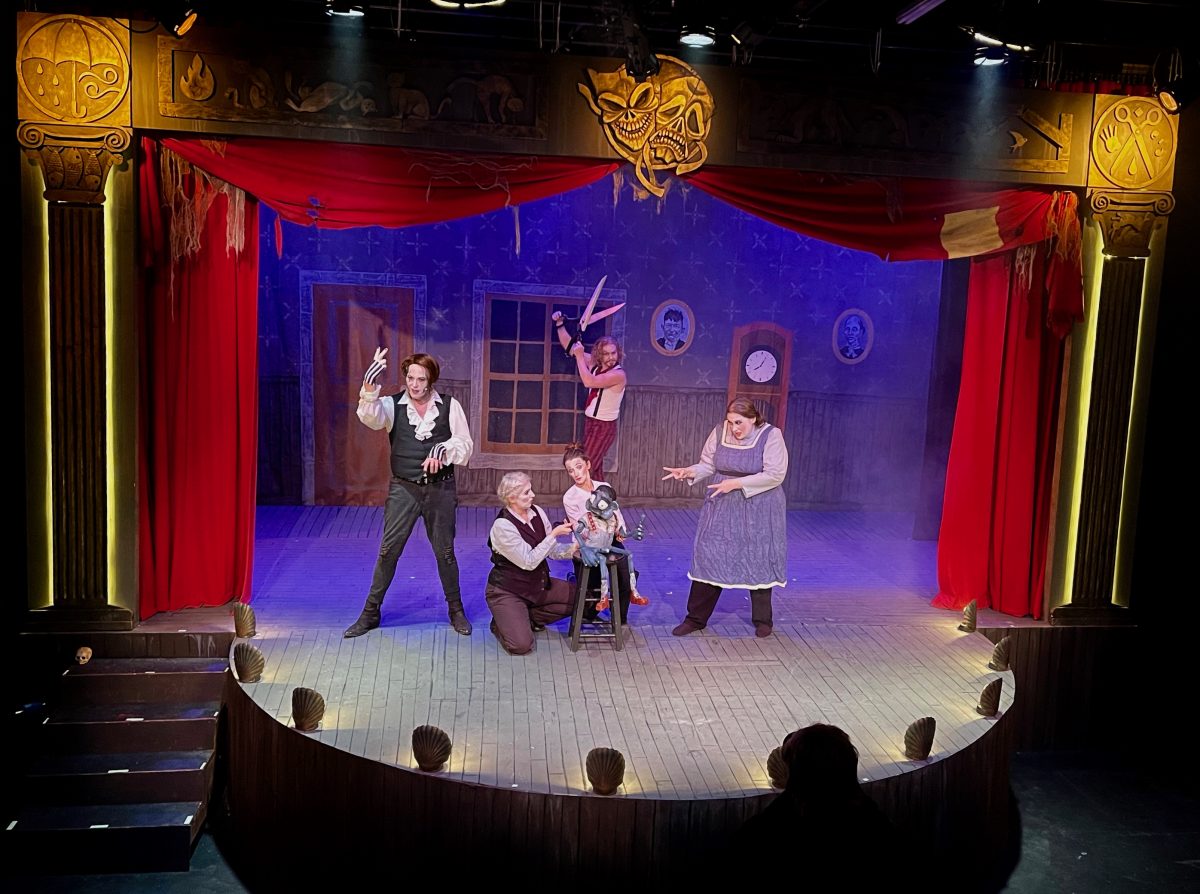
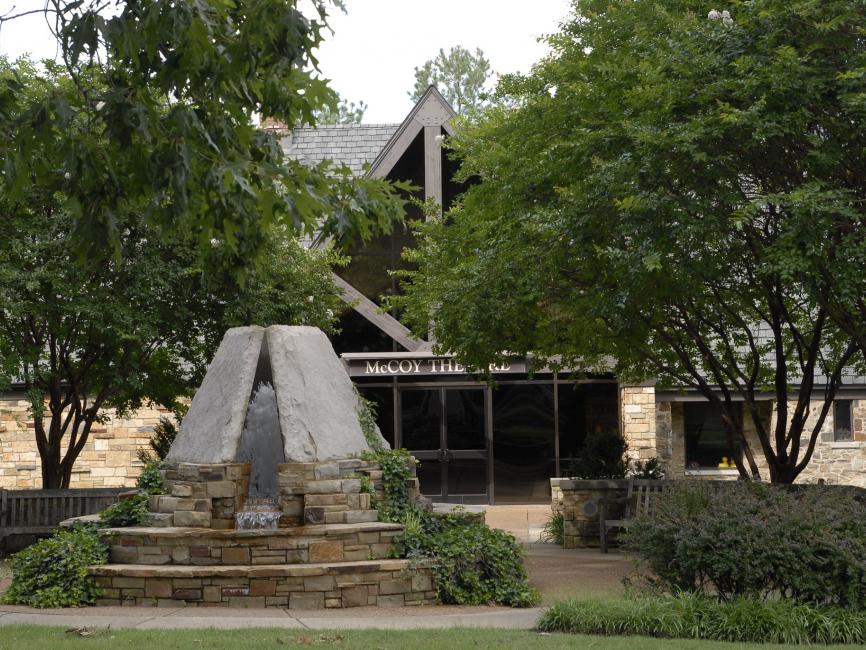
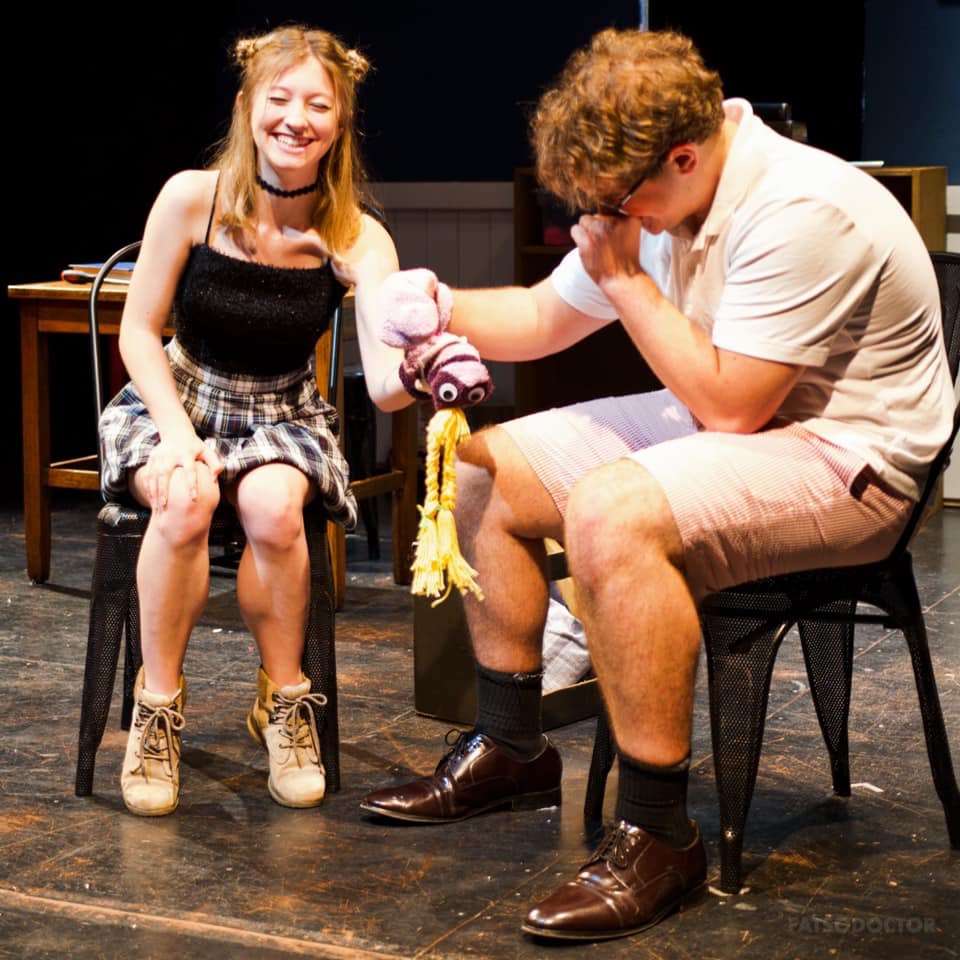
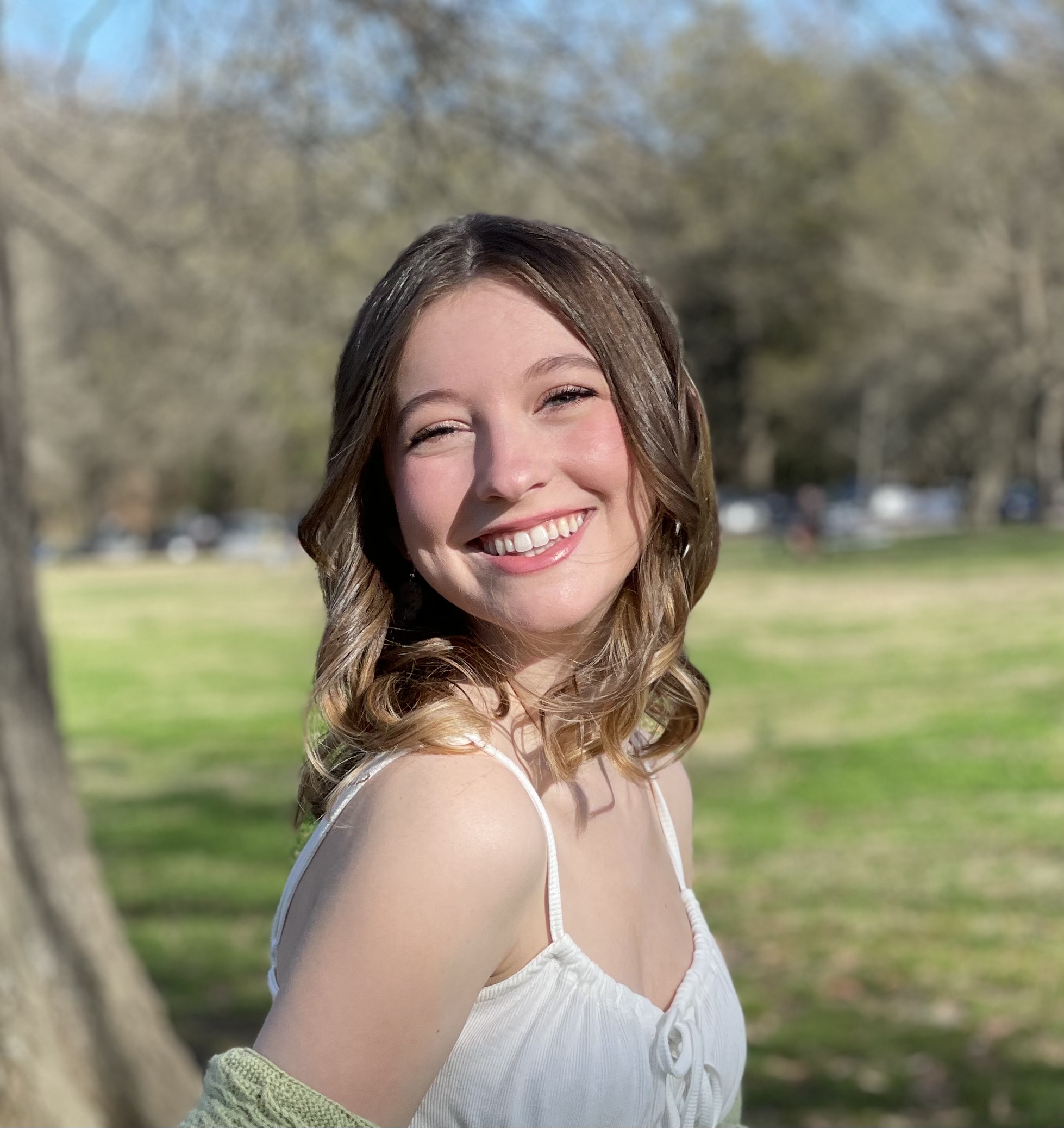

 Carla McDonald
Carla McDonald 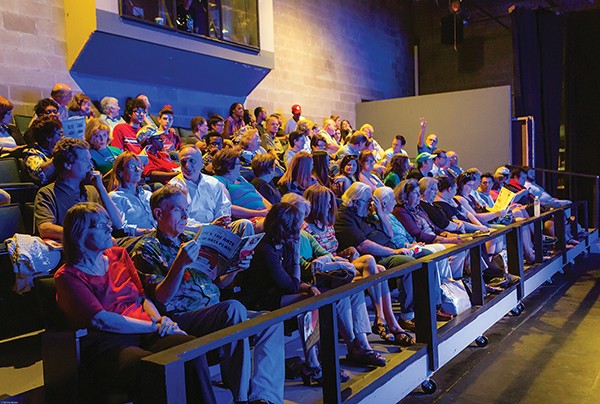
 Bill Simmers
Bill Simmers